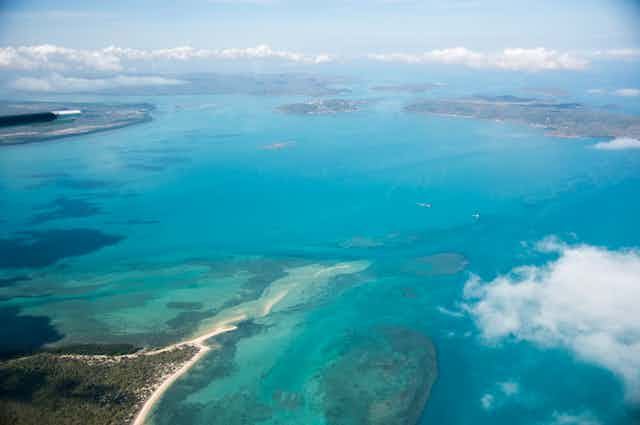On October 14, Australia voted against First Nations peoples’ having a constitutionally enshrined right to be heard on matters that affect them. There was a catchcry during the campaign that a “no” vote would mean keeping with the status quo. Indeed, the referendum outcome sustains the political subjugation of our communities.
Yet, Torres Strait Islanders have a long history of pursuing self-determination even in restricted conditions.
Zenadth Kes is the Torres Strait Islander name that represents the place we are from. Despite many shared experiences and solidarities with our Aboriginal kin, our position as Zenadth Kes people, both historically and today, is unique.
Although Zenadth Kes people are often combined with Aboriginal people in Indigenous politics, we have significant political histories of our own.
Read more: Why the Australian government must listen to Torres Strait leaders on climate change
Zenadth Kes: united voices
Zenadth Kes signifies a regionally united group of Torres Strait Islander communities that once were distinct.
Zenadth Kes is an alternative term for Torres Strait Islanders. It is used by islanders who don’t wish to use the colonial nomenclature of “Torres Strait”, but unlike specific clan names, it acknowledges all the groups in the region.
Zenadth Kes peoples have a tiny population of just under 70,000 people (identifying as Torres Strait Islander, or Aboriginal and Torres Strait Islander), according to the last national census.
The vast majority of Torres Strait Islanders live on the mainland (primarily in Queensland) spread across multiple electorates. As a result, they have very little electoral political power and a minority status within national Indigenous affairs agendas.
Despite this, Zenadth Kes people have been highly effective in maintaining and adapting their distinctive laws, knowledges and practices at the interface of colonial power.
Torres Strait Islander people may be small in number on the national political stage, which presents challenges, especially at the ballot box. For millenia, however, our peoples have navigated changing tides.
This short history reminds us we determine our own futures, no matter the changing determinations of others.

